Forensic science majors are expressing concerns and looking into alternative education paths after St. Edward’s University upper administration rescinded the program’s accreditation application.
The program had been working toward the American Academy of Forensic Science’s accreditation through the Forensic Science Education Programs Accreditation Commission (FEPAC) since 2013, according to a document called the Articles of Concern, which was emailed to faculty March 26 by the Faculty Senate in preparation for a pending vote of no confidence in university President Montserrat Fuentes.
“Eight days before the visit, with all travel booked and meetings scheduled with students, alumni and university stakeholders, the School of Natural Sciences Dean Jon Hodge was called in by Provost (Marianne) Ward-Peradoza and told to stop the process,” states the Articles of Concern. “Neither Provost nor the President has communicated directly with the program’s director, Dr. Casie Fisher,” according to the Articles of Concern.
Hilltop Views received the following comment from Ward-Peradoza in response to requests for a statement regarding the rescinded accreditation application.
“We value the Forensic Science program, program faculty and students, and are committed to a vibrant and robust Forensic Science program,” Ward-Peradoza said in an email to Hilltop Views. “The accreditation visit was canceled because the site visit was scheduled without my knowledge and it had not been approved by the Board of Trustees for this next step in the process. All accreditations require institutional commitments that the university did not have authorization to make. The university maintains regional accreditation through SACSCOC, which is the most important accreditation for any program.”
Fuentes addressed the accreditation issue in a memo sent to faculty on April 4.
“While we value the Forensic Sciences program, the accreditation site visit was canceled because it had not been approved by the Board for this next step in the process,” she wrote. “Obtaining the accreditation requires the university to be prepared in many areas to support and maintain the accreditation once obtained.”
Students, like forensic science major Steven Papaleo, have expressed concern about the halt of the accreditation process and how it will affect students entering the forensic science career field.
“The FEPAC accreditation is a really huge deal, because, especially in the state of Texas, there’s a bunch of state laws that are requiring people pursuing forensic science to get a bunch of certain licenses, and forensic science programs need to have that accreditation to be taken seriously,” Papaleo said. “So, for years, we’ve been able to say, ‘Oh, yeah, we’re seeking accreditation, we’re seeking it.’ And so that’s able to get our students hired places. But now, within the last semester, we were supposed to have an on-site visit. And I think it was Fuentes, who just canceled it pretty much, which was basically just a death sentence for our program.”
Although the major is still available and enrollment for freshmen is still happening, the courses available for next semester have shifted from courses offered in past semesters. According to registration on MyHilltop, classes like Principles and Practices of Science and Law, Fundamentals of DNA Profiling, Death Investigations and Professional Practice in Forensic Science that were offered in Spring 2023, Fall 2023 and Spring 2024 are no longer being offered in Fall 2024.
“We come here to get a job,” forensic science major Ash Timiney said. “So, it just makes St. Edward’s not look career-focused.”
For the Fall 2024 semester, introductory courses — Crime Scene Investigation I Lab, Crime Scene Investigation I and Crime Scene Photography — and two new entomology-based courses are the only classes within the university’s forensic science program available for registration.
“We have a DNA profiling class and some other crime investigation classes that I’ve taken and a lot of the upperclassmen will take that are being replaced with entomology courses,” Papaleo said. “I think, yes, a lot of our coursework in the degree program was aligned with what the accreditation would require, because a lot of labs require you to take certain chemistry classes and whatnot. And so now they’re just kind of just just pivoting away from that, and they’re not even trying.”
A forensic science program without accreditation directly impacts the future of students’ education within the major, like Timiney and junior Nikki Overton.
“I have to switch majors in order to get a job in forensic science — that’s my whole career goal, working in forensics,” Overton said. “I know some people are able to stay here and just change their major, I don’t know if anyone is going to stay in the forensic science program, I really don’t. I can’t see why, it doesn’t make sense to stay in the program when you’re going to have so many hurdles looking for a job.”
According to Papaleo, students have begun to transfer to other colleges with accredited programs.
“It is super detrimental for them,” Papaleo said. “It’s definitely been a very big hit for us. And yeah, a lot of students are really struggling and also just freaking out because now it’s like, ‘Okay, we don’t have the qualifications on a lot of job postings.’ A lot of job postings will say they want your forensic science degree to be accredited. And now since ours isn’t, we can’t even apply for these jobs.”
Timiney voiced similar concerns about the upper administration’s overruling last semester and how it affects students’ abilities to secure jobs.
“Them removing the feedback accreditation makes it much more difficult for us to be able to get internships,” Timiney said. “It doesn’t make agencies more willing to work with St. Edward’s, and I think that’s the hardest part, and a big reason why me and other students just absolutely can’t stay here. We don’t have the opportunities that we had (last semester) that we would’ve had at this school.”
Papaleo expressed overall disappointment in the university’s decision to not move forward with the accreditation.
“Even though I’m graduating (this semester), in five years or whatever, if I’m talking to people and saying, ‘Oh, yeah, I graduated with a forensic science degree,’ Papaleo said. “And they ask, ‘Oh, well, how’s the program?’– ‘Oh, yeah, the program got gutted by the President.’ I’d like to be proud of my major and my school. So it’s certainly very disappointing, too, it seems like now we’re being forced to go in a direction where it would be harder to be proud of my school for sure.”


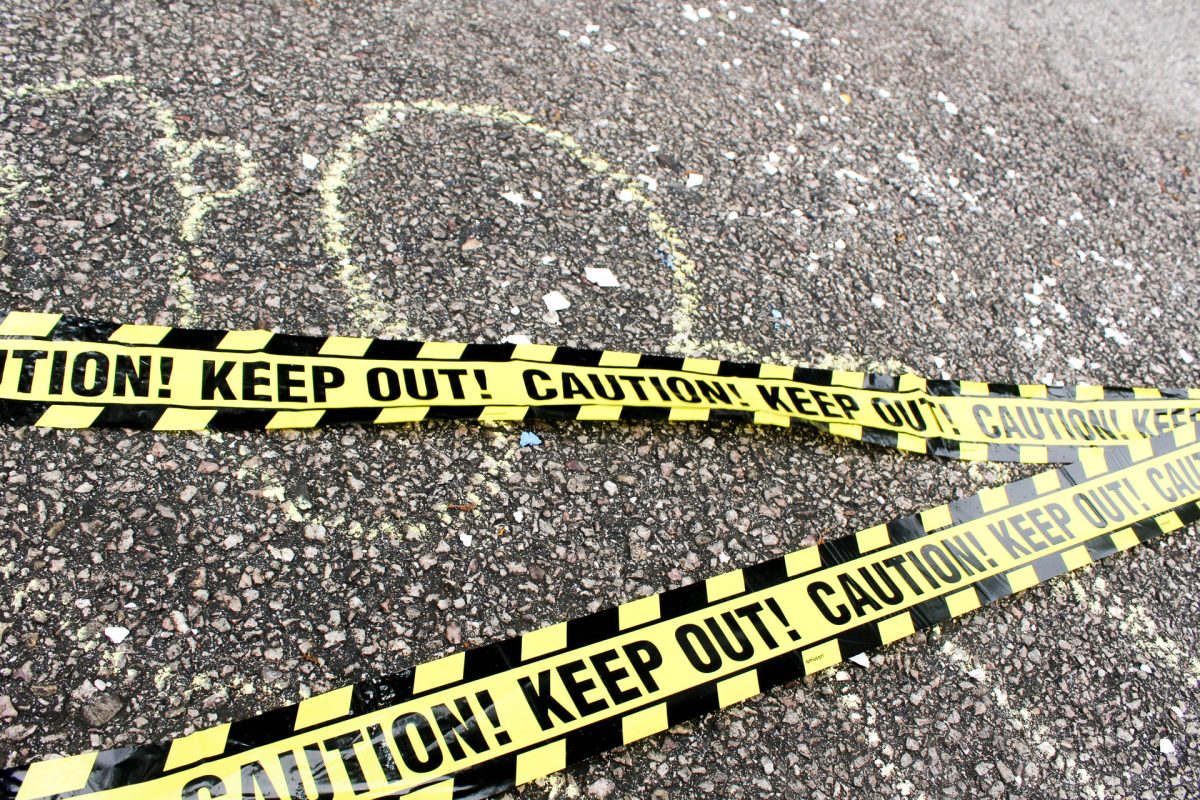
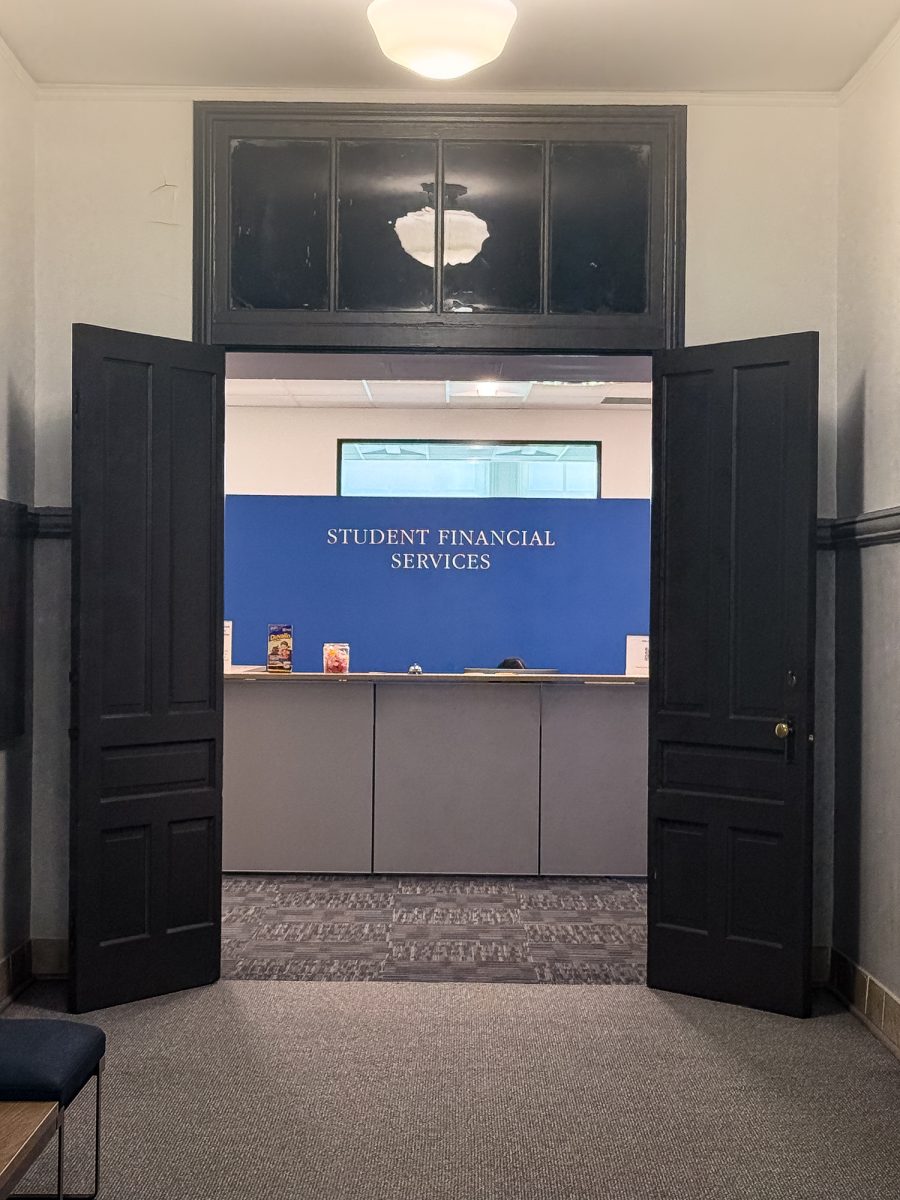
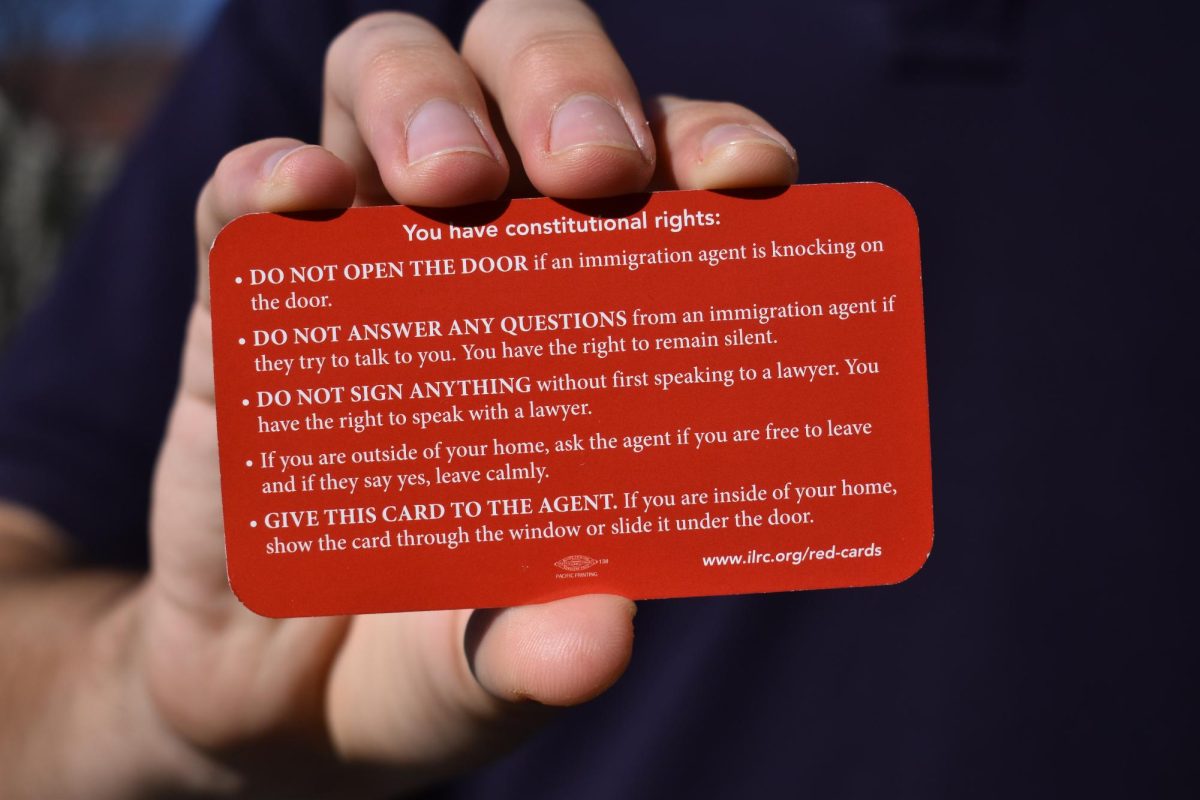


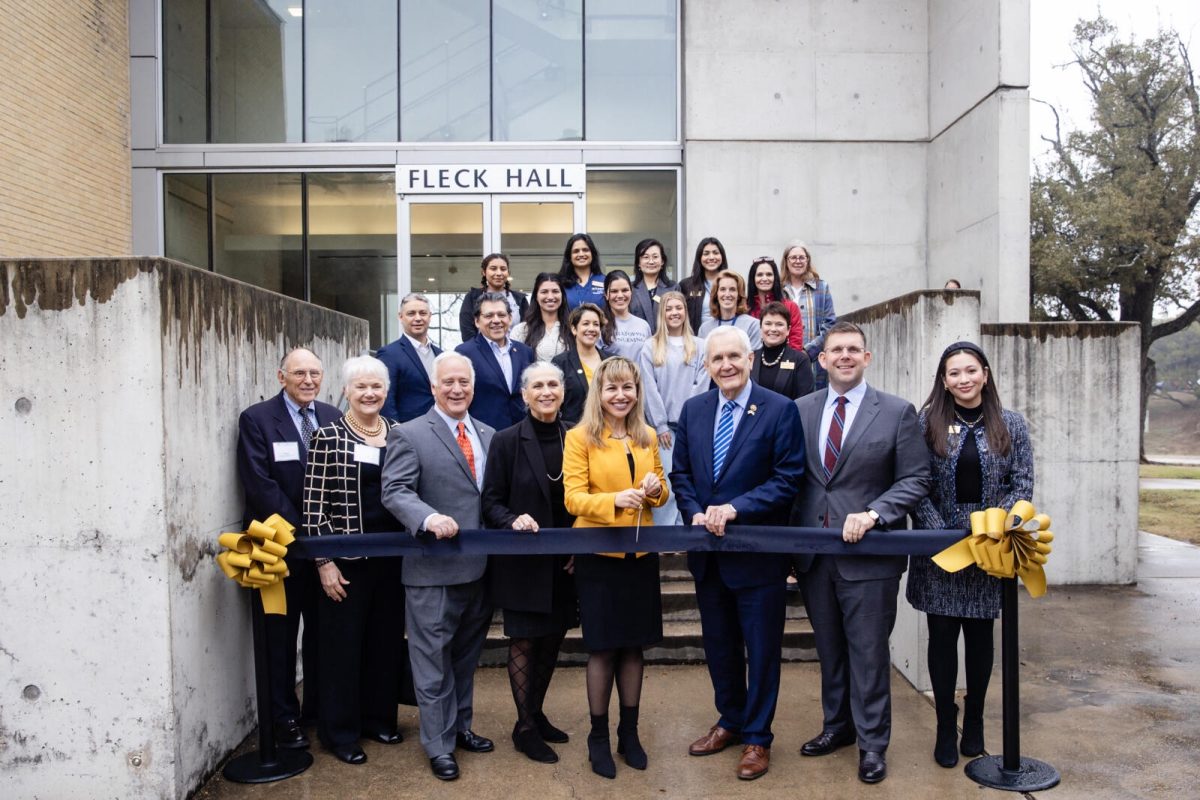

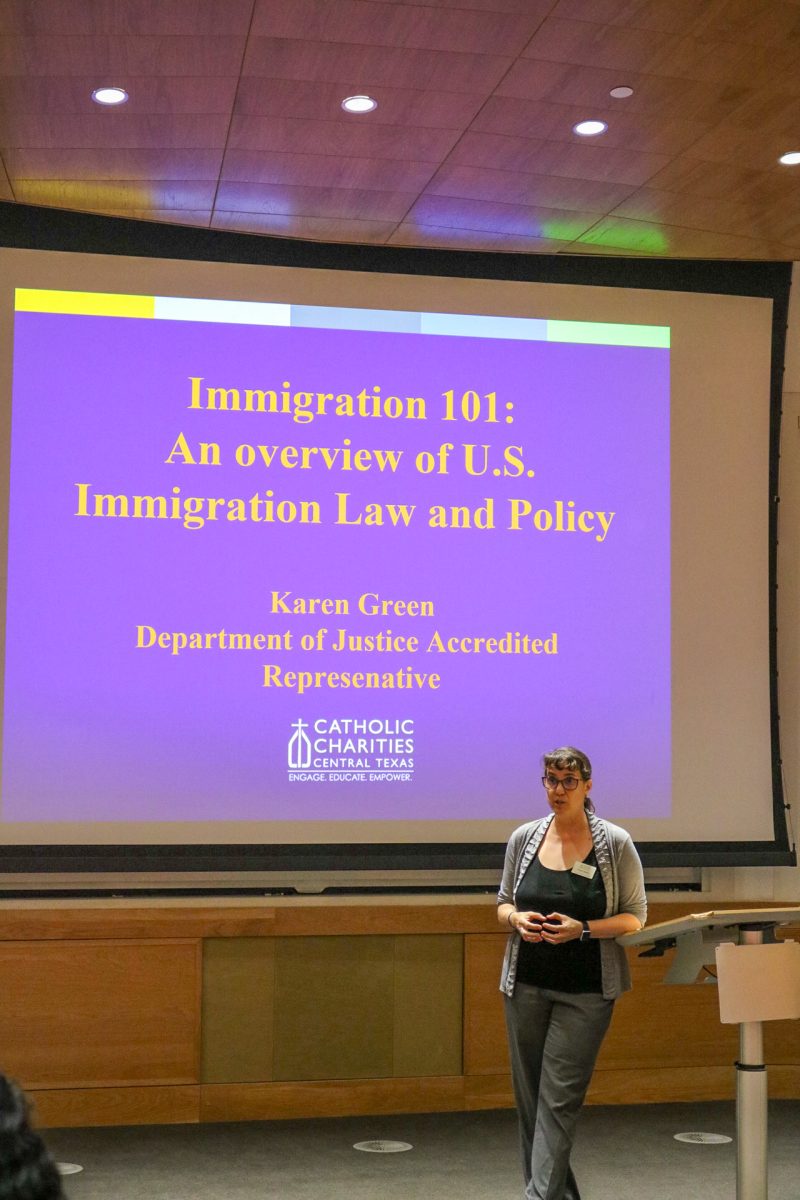

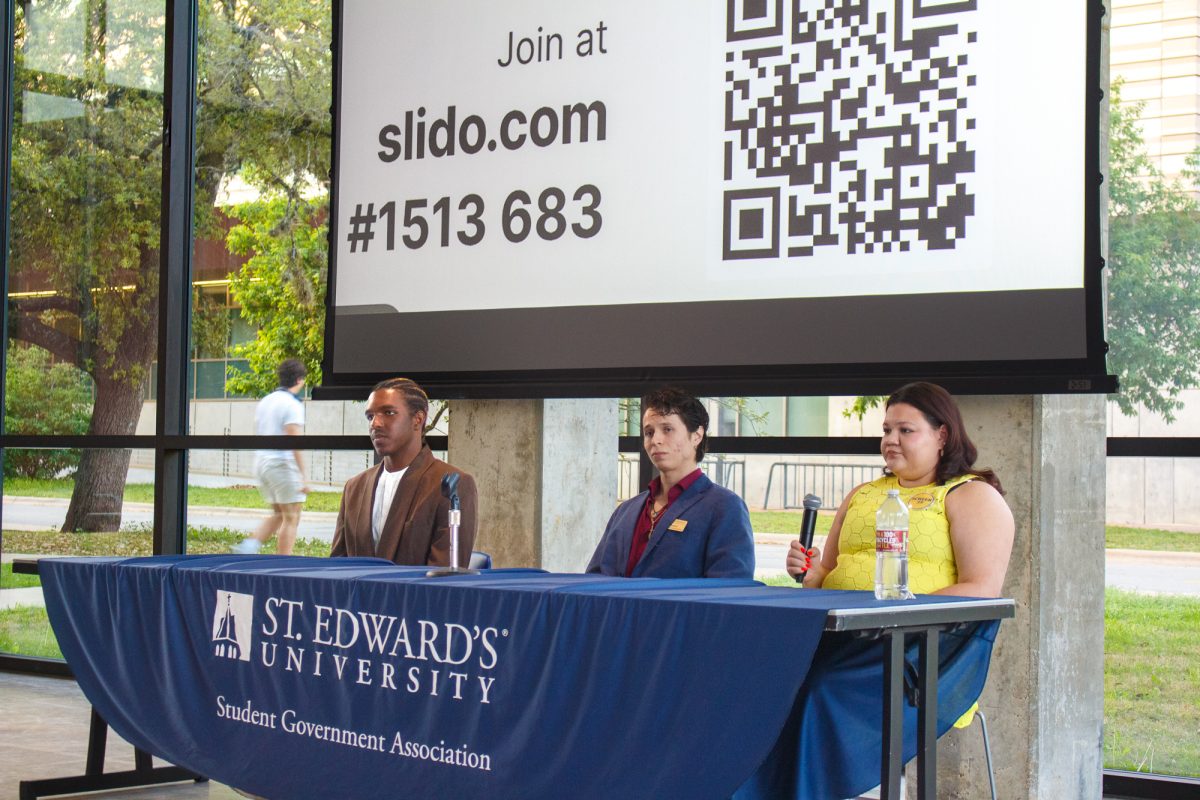

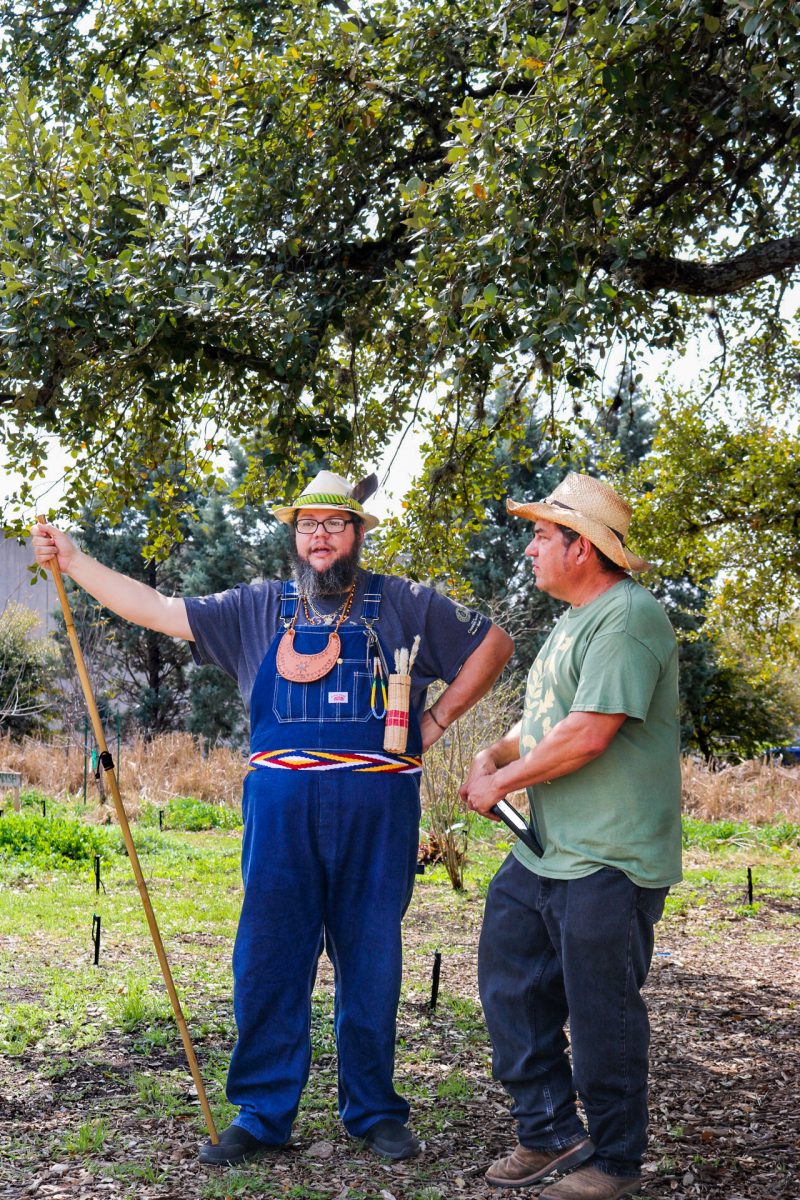
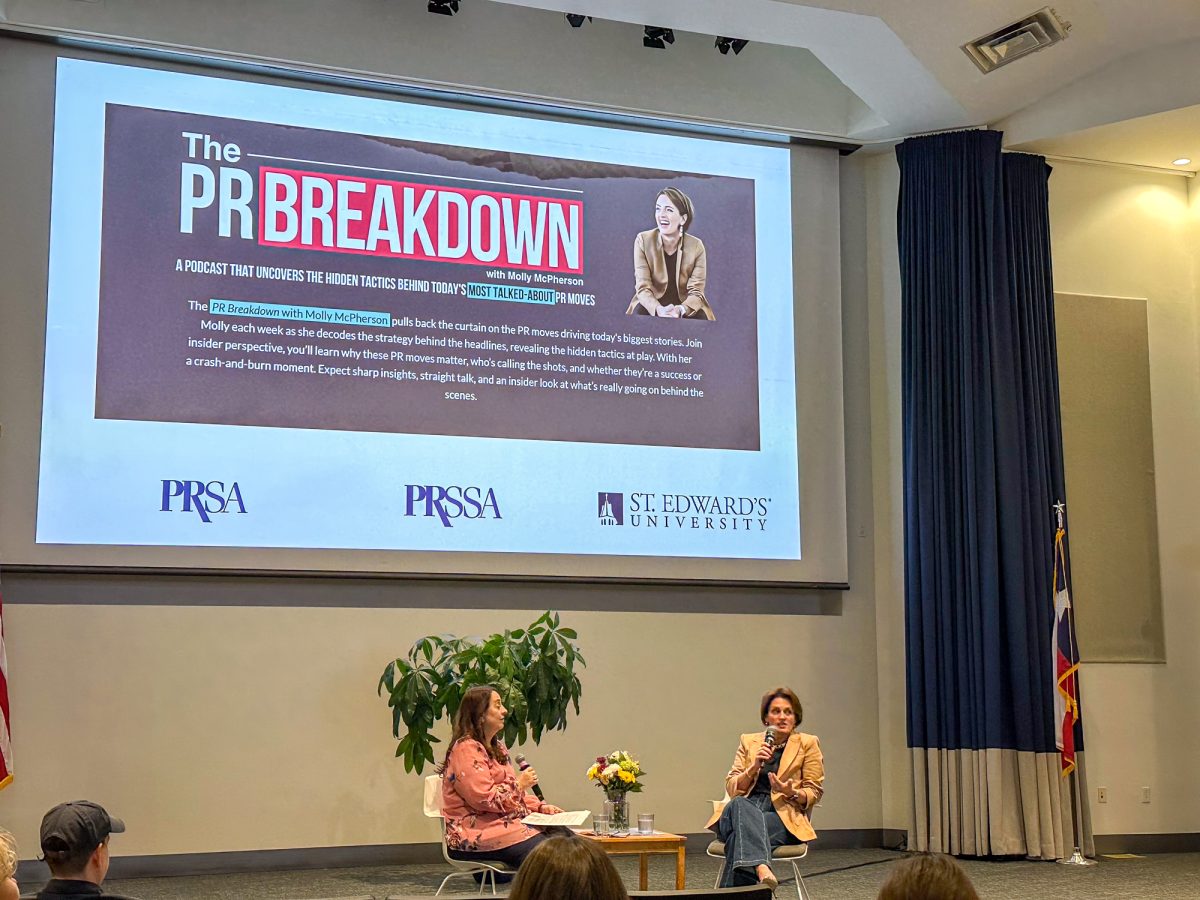
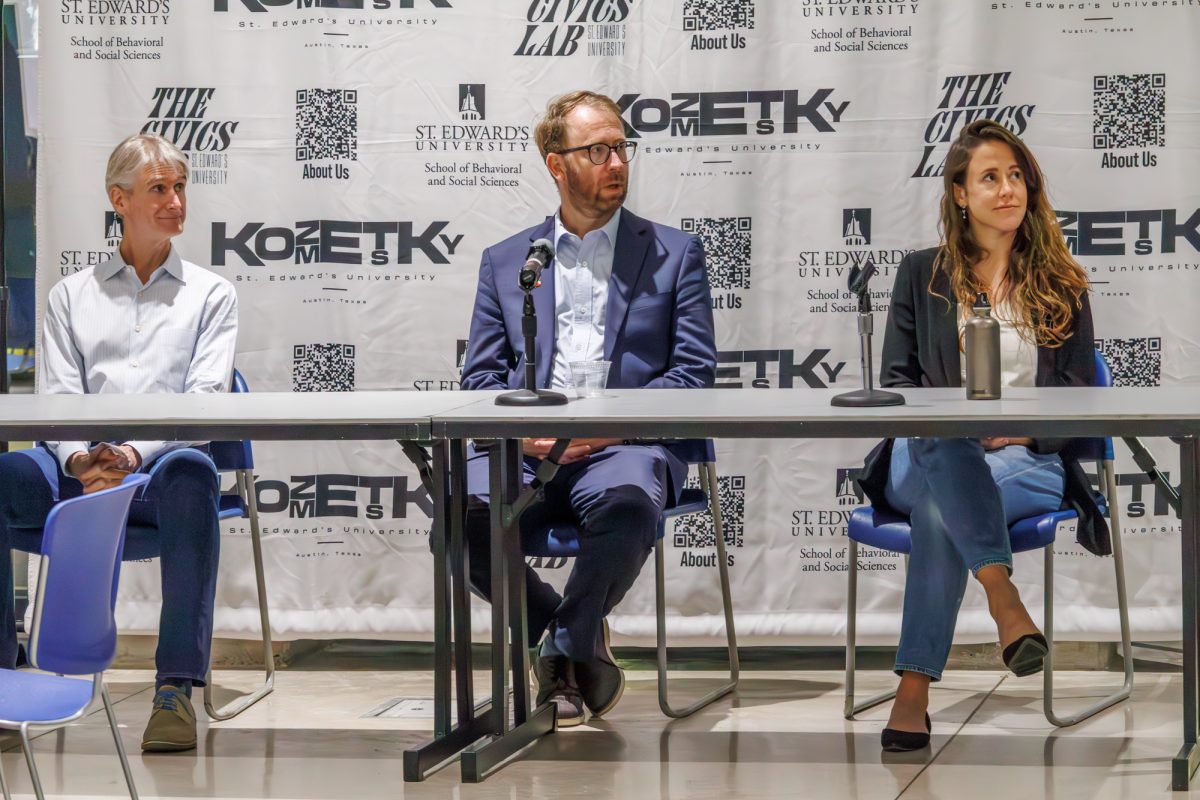
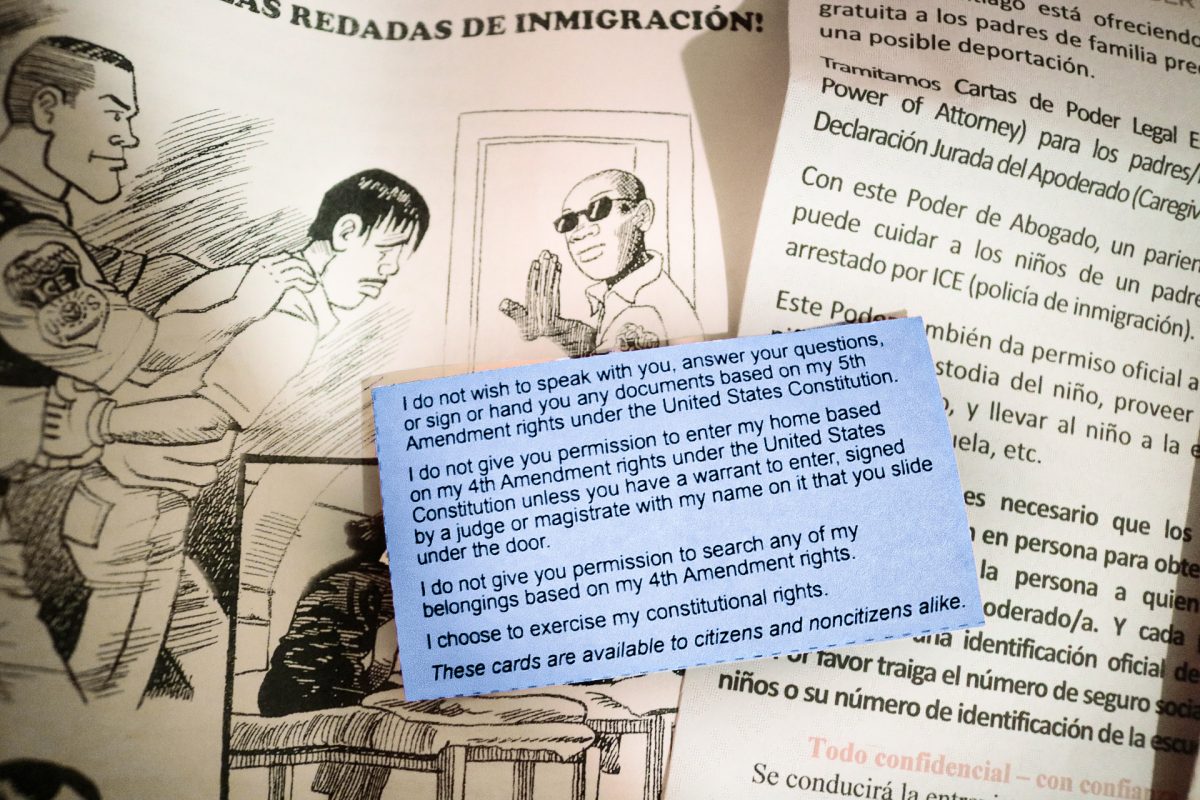
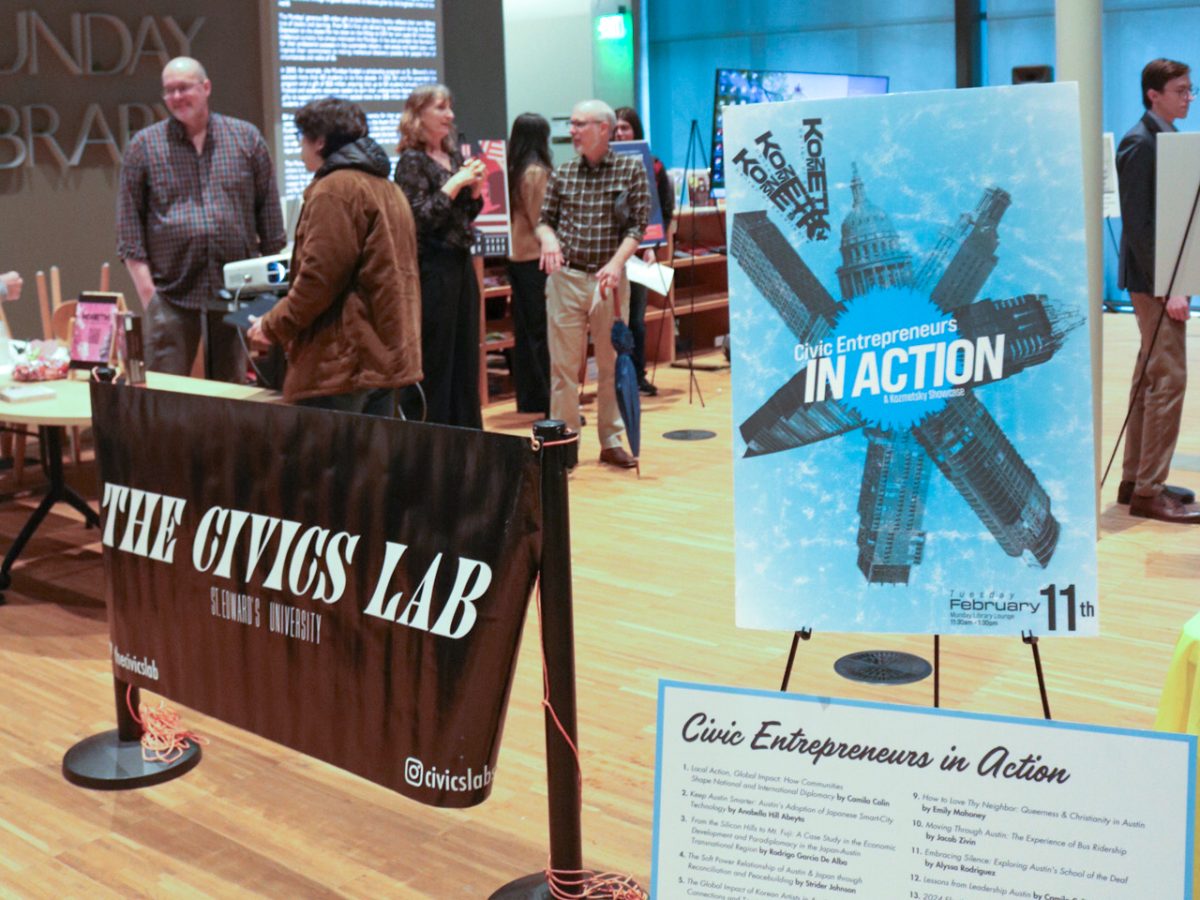




Vanessa Lopez-Campos • Jul 16, 2024 at 4:14 pm
This entire article was very disheartening to read, not only as a St. Ed’s alum, but particularly as an alumni of the forensic science program. Graduating from the forensic science program at St. Edward’s gave me a strong practical basis and an edge that opened the door to numerous opportunities within the science field and workforce. This program not only made me a competitive applicant for graduate school, but it also created a strong standard for the type of professional that is needed in the workforce. I graduated only a few years ago, but to see that the program has been gutted this way is more than just disheartening. Dr. Parish-Fisher has done wonders with preparing students in the forensics program with practical applicative classes. There is no need to fumble behind administrative tape and prevent accreditation from taking place.
As a prior graduate, classes such as Death Investigations allowed me to gain connections that in turn resulted in a great internship at the Tarrant County Medical Examiner’s Office. As someone who wishes to pursue Forensic Pathology as a career, I credit the Death Investigations course with providing me that specialized knowledge and allowing me to network so that opportunities like the ones I have received, are NOT few and far between for graduates. Professional Practica and Principles and Practices of Science and Law were also fundamental courses that I took and still credit with giving me the skills that I continue to use today specifically within pursuing opportunities in the forensics field. The program also gave me a strong science foundation that I have used to pursue a career in medicine, and also vital research and presentation skills that are extremely sought after.
I am now even a student affiliate member of the American Academy of Forensic Sciences, which is the accrediting body in question. Preventing this program from being accredited through FEPAC is a big mistake. Going to the national AAFS conference, other FEPAC accredited programs have the opportunity to table and appeal to potential applicants interested in education programs that will aid them in the field. This seems like a huge mishandled opportunity, not only for the students who want to pursue forensic science in Texas, but for St. Edward’s University as a whole.
Stephanie Timiney • Apr 23, 2024 at 1:10 pm
As a parent who paid for the tuition for oue student so she could attend a school that offered the accreditation, I feel robbed. You robbed my child and you robbed me financially for investing in a school that failed miserably in providing what it had advertised. We are leaving St Ed’s to attend another University. We leave with a bitter taste in our mouths, but this is what we must do so our child can get the accreditation she has been working so hard towards. I will never recommend this institution due to the backhanded way this entire situation was handled. Shame on you. Your students deserve better.